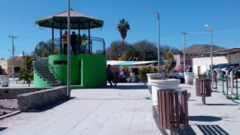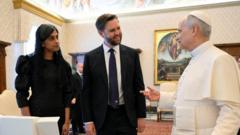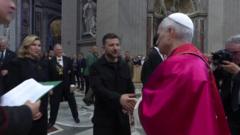**This article explores the potential succession of Cardinal Mario Grech, focusing on his background, current roles, and views in relation to recent shifts in the Catholic Church.**
### Potential Pope Successor Emerges from Malta: Cardinal Mario Grech

### Potential Pope Successor Emerges from Malta: Cardinal Mario Grech
**An analysis of Cardinal Mario Grech's candidacy for the papacy amid evolving Church dynamics.**
As the Catholic Church approaches another conclave for electing a new Pope, the spotlight has turned to Cardinal Mario Grech, a prominent figure known internationally for his leadership within the Vatican's Synod of Bishops. Grech, who hails from Malta—one of Europe’s smallest nations, housing approximately half a million people—could soon take on the monumental role of Pope.
At 68 years old, Cardinal Grech has gained recognition due to his position as secretary general of the Synod, an essential body according to canon law, responsible for addressing the Church's global actions. His candidacy has gained traction, particularly as Pope Francis embarks on defining the church's future through a more inclusive synodal approach, dubbed the Synod on Synodality. This initiative aims to cultivate collaborative dialogue among church leaders and laypeople, including women, marking a significant shift towards inclusivity within church governance.
While Grech held more conservative views during his tenure as bishop of Gozo from 2005 to 2020, specifically when opposing homosexuality and divorce legalization during Malta's 2011 referendum, his tenure in the Vatican has seen a transformation. Following Pope Francis's ascension, Grech has adopted a more open stance, signaling a potential continuity in papal vision should he succeed Francis.
The synod process, initiated in 2021, has allowed local churches worldwide to engage in discussions about pressing issues, thus providing an unprecedented platform for Catholic voices to influence the Church's direction. As Grech’s candidacy unfolds, many will look to see whether his previously conservative values evolve further in the face of contemporary challenges facing the Church. This evolution speaks not only to Grech's potential role as pope but also to the Church’s ability to adapt to modern societal norms.



















